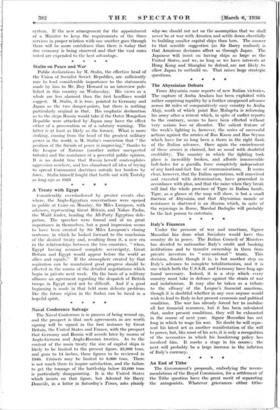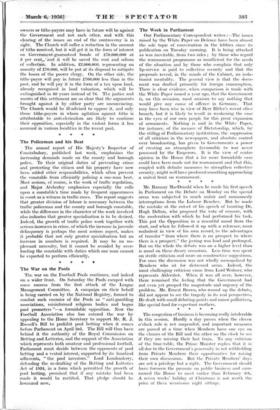An End of Tithe The Government's proposals, embodying the recom-
mendations of the Royal Commission, for a settlement of the Tithe question have the - great merit of separating -the antagonists. Whatever grievances-, either tithe- owners or tithe-payers may have in future will be against the Government and not each other, and with this clearing of the issues an end of the controversy is in sight. The. Church will suffer a reduction in the amount of tithe received, but it will get it in the form of interest on Government-guaranteed bonds of £70,000,000 at 3 per cent„fand it will be saved the cost and odium of collectidn. In addition, £2,000,000, representing an annuity of £70,000, will be put at its disposal to mitigate the losses of the poorer clergy. On the other side, the tithe-payer will pay in future £700,000 less than in the past, and he will pay it in the form of a tax upon land, already recognised in land valuation, which will be extinguished in 60 years instead of 76. The justice and merits of this settlement are so clear that the arguments brought against it by either party are unconvincing. The Church would be ill-advised to oppose it, and only those tithe-payers in whom agitation against tithe is attributable to anti-clericalism are likely to continue their opposition, especially in the violent forms it has assumed in various localities in the recent past.

















































 Previous page
Previous page